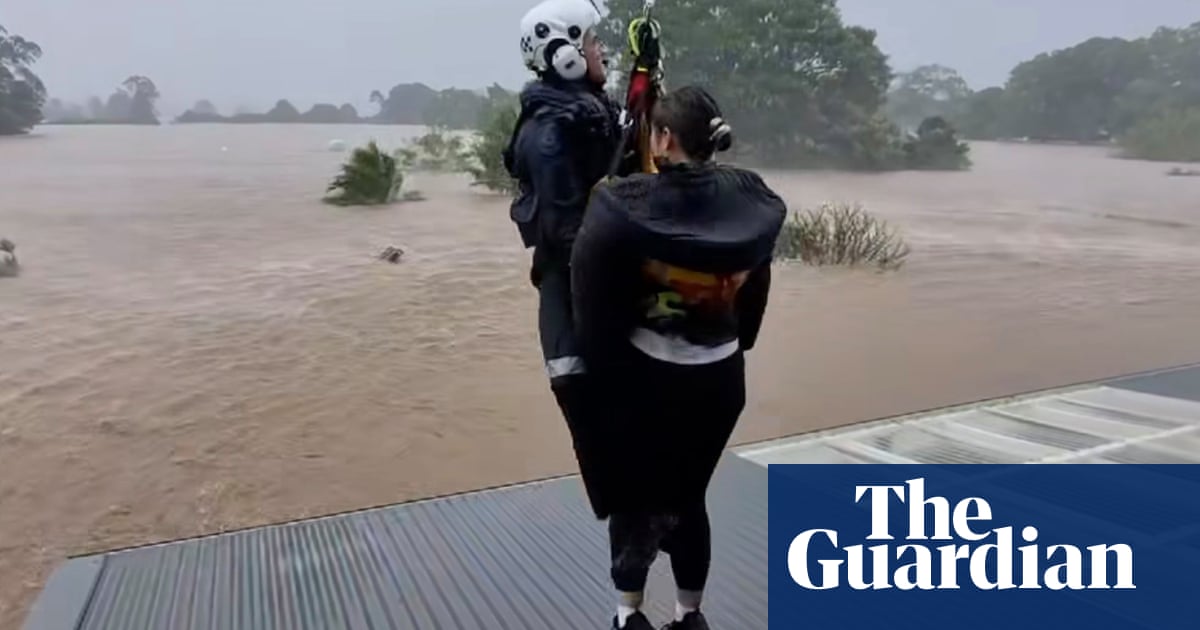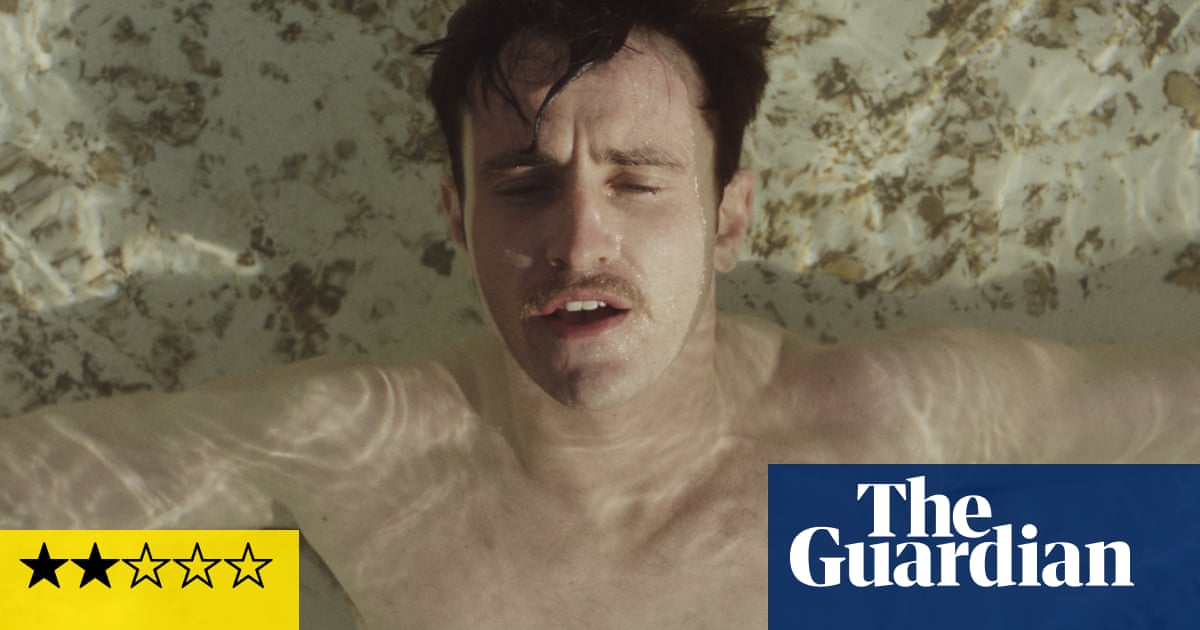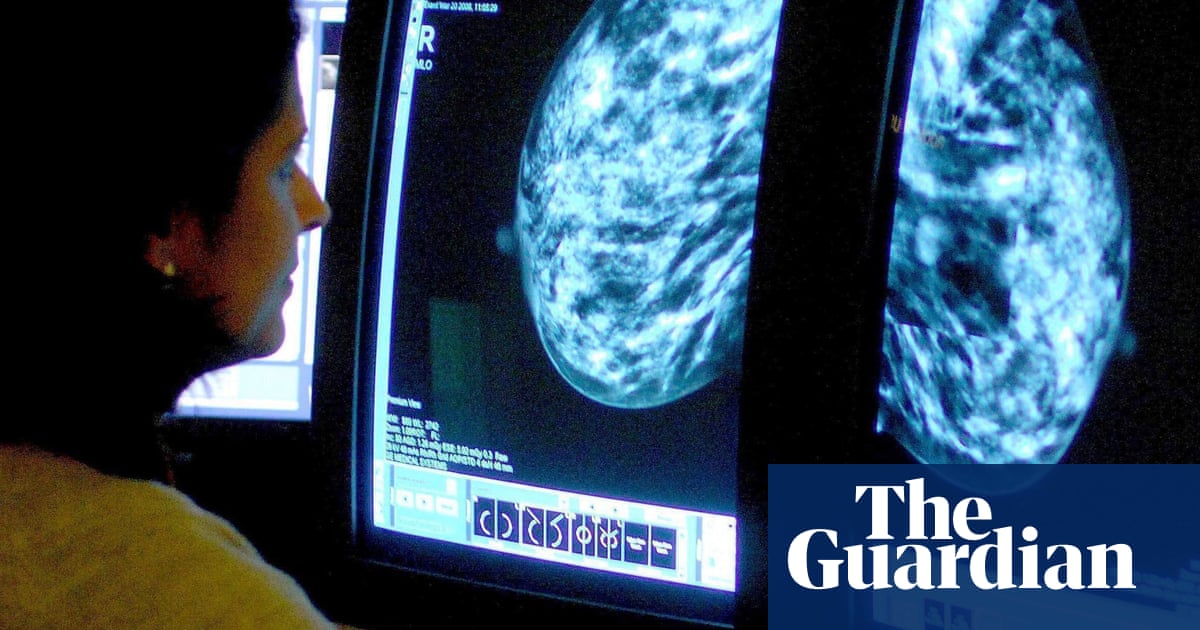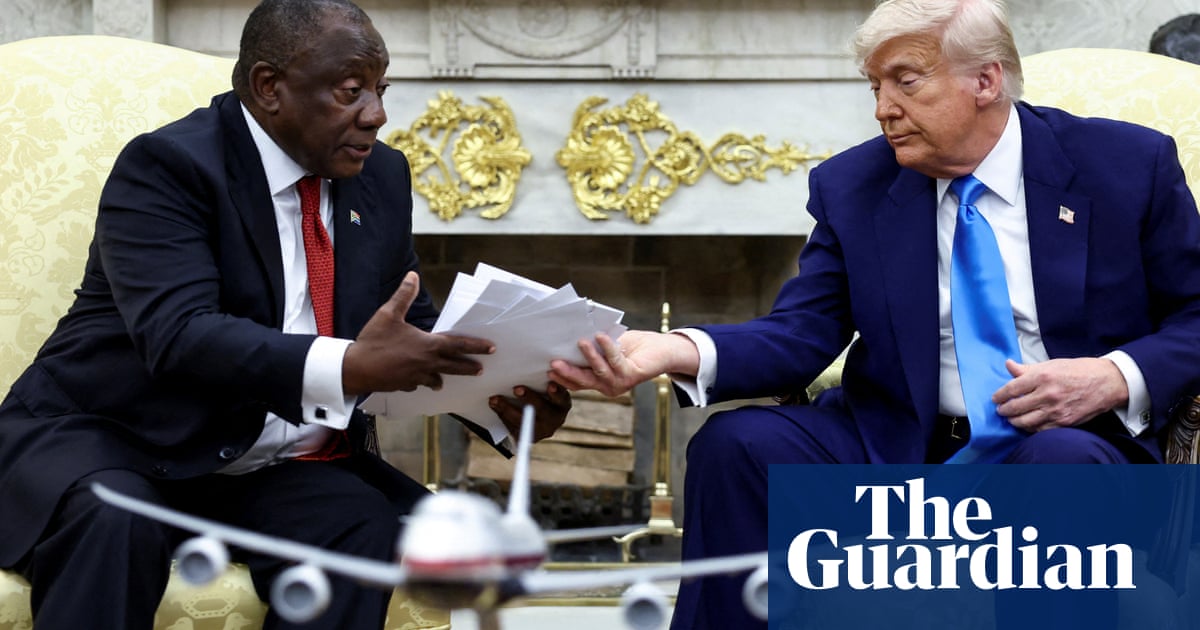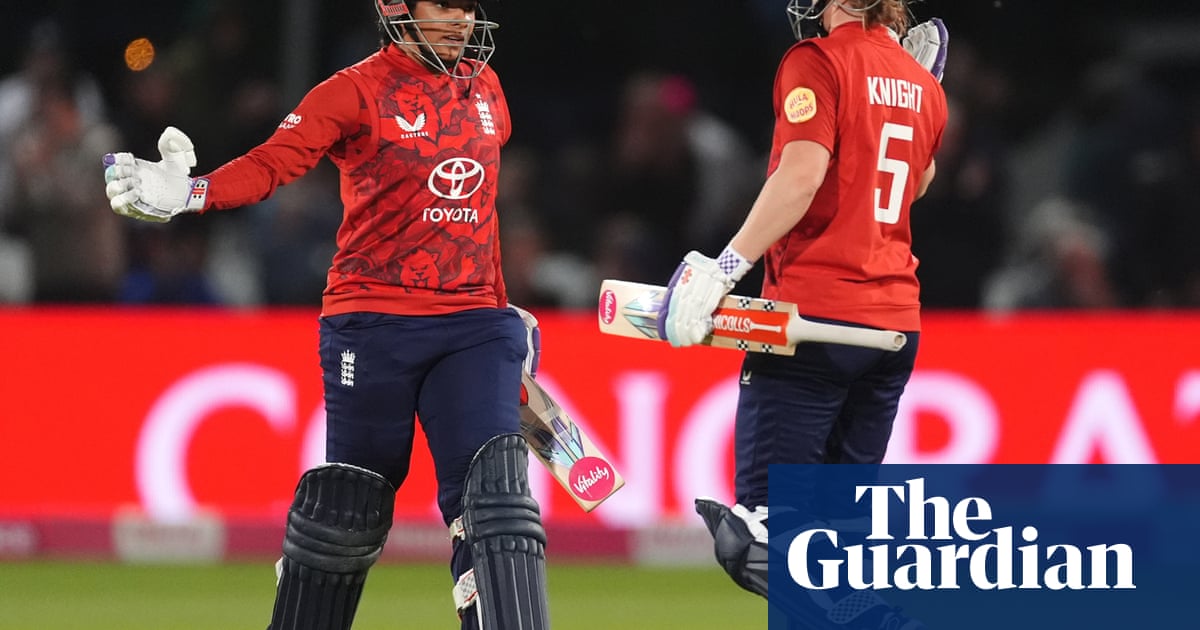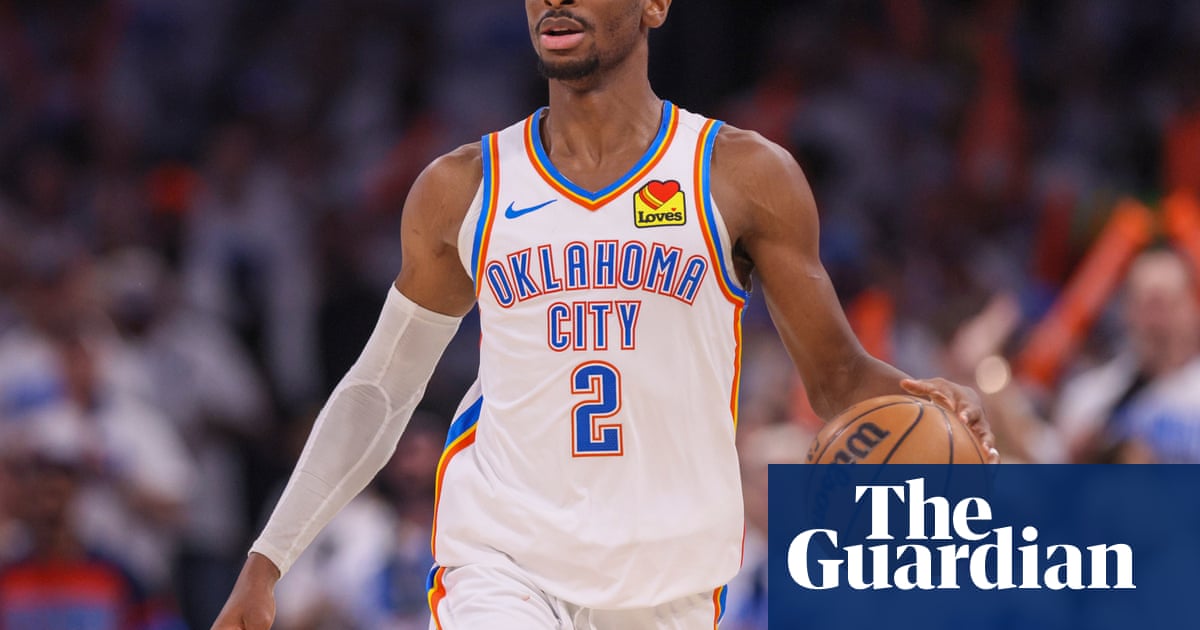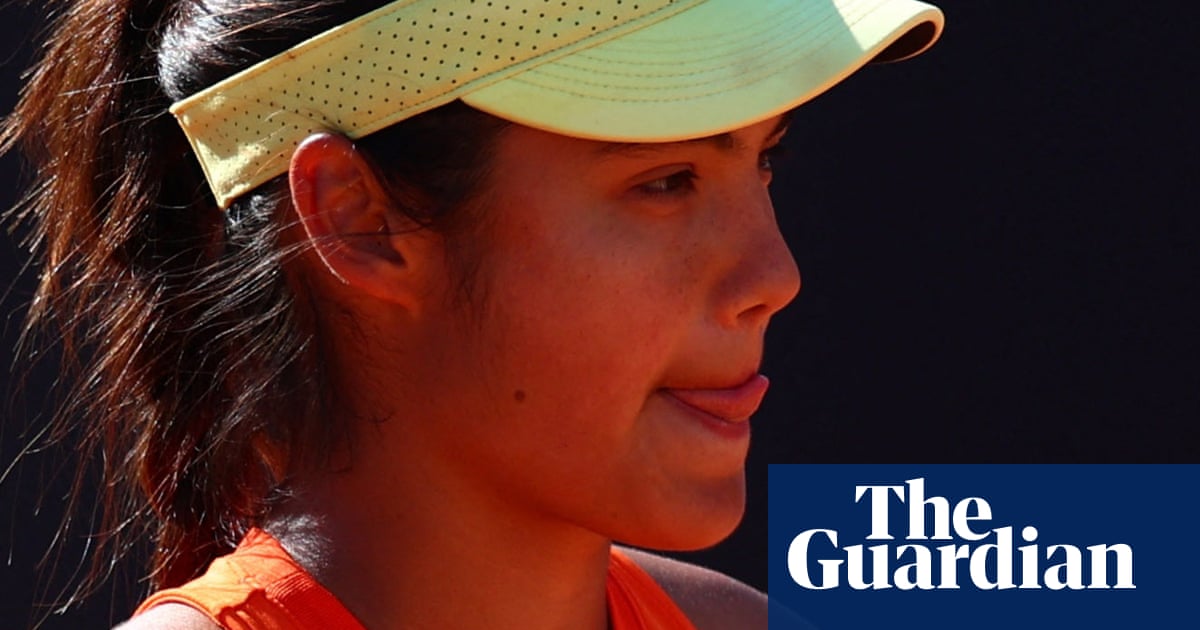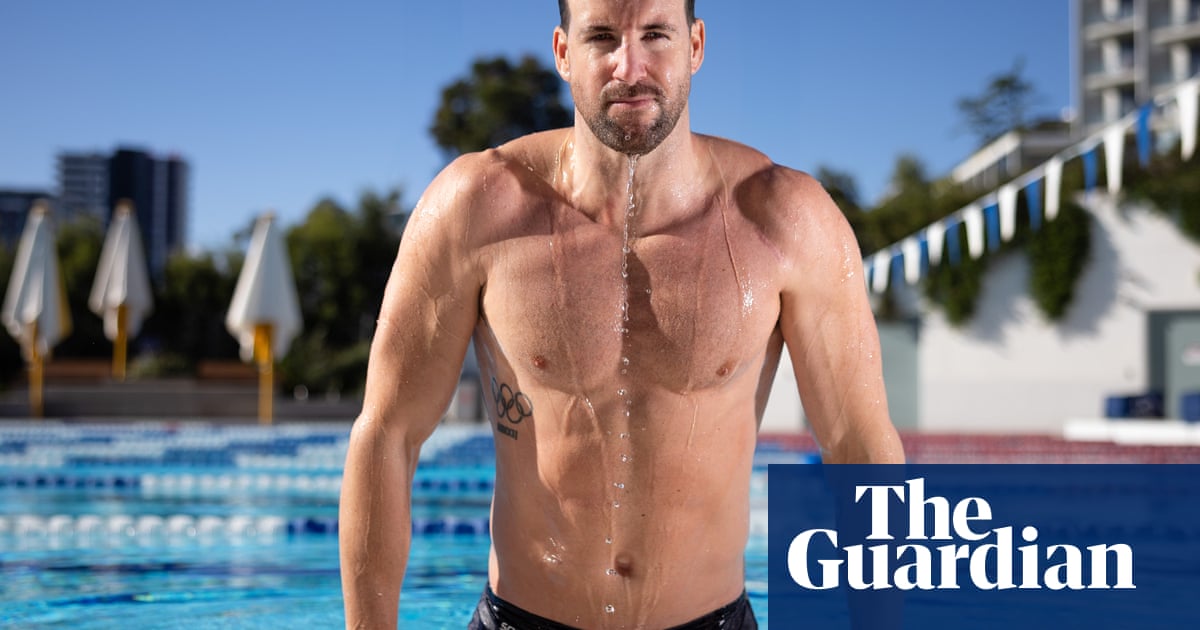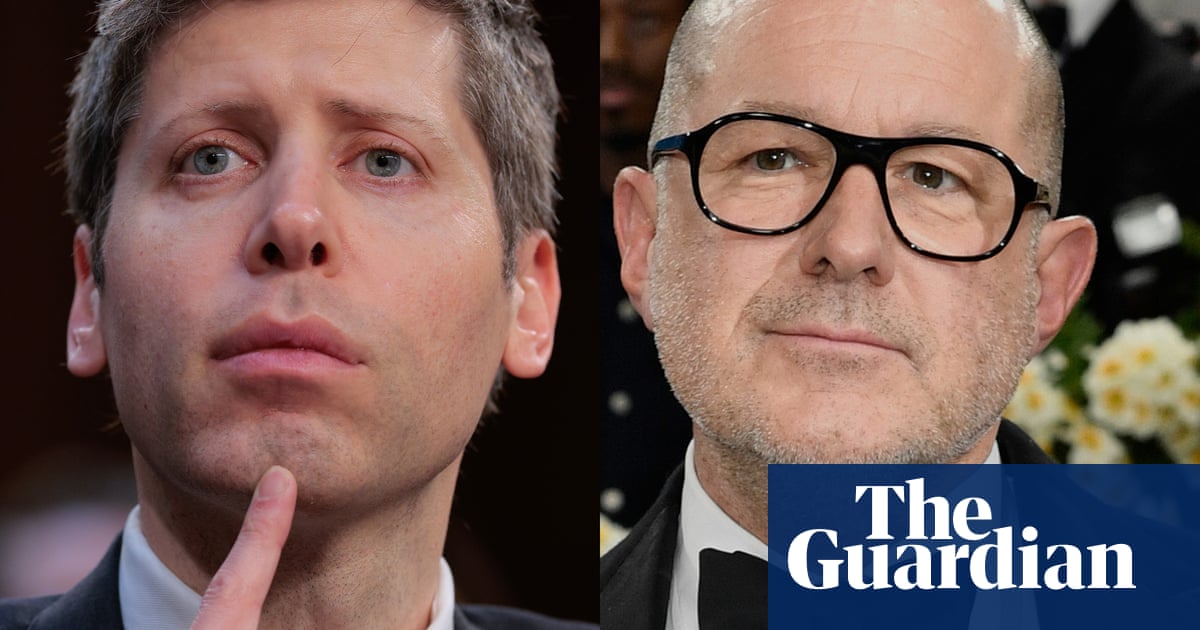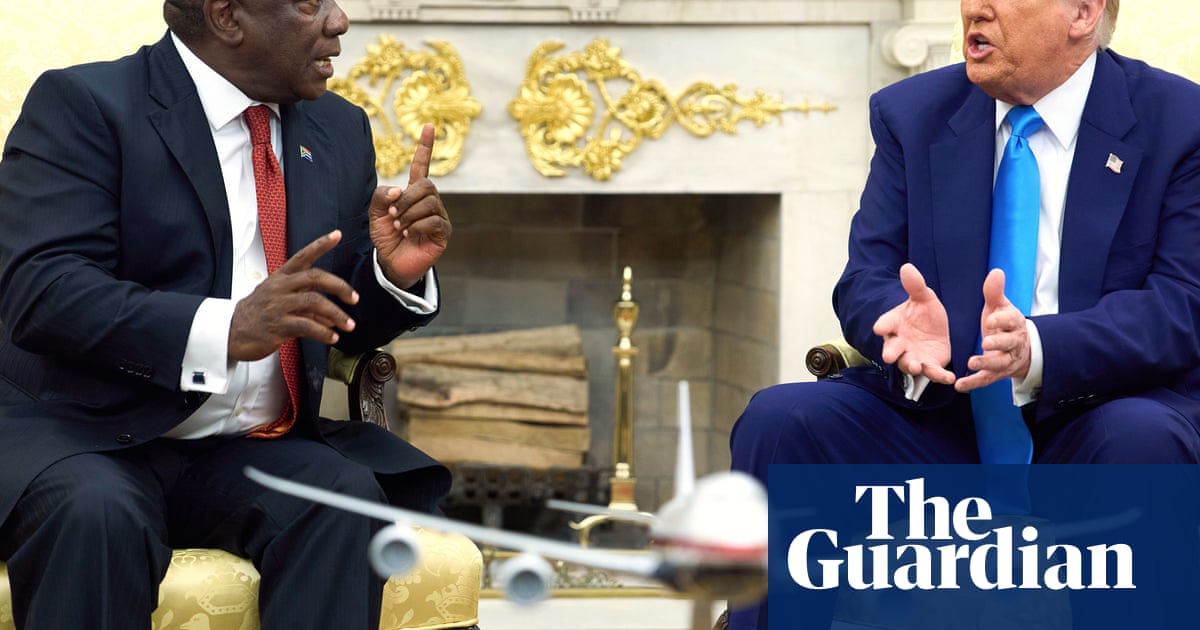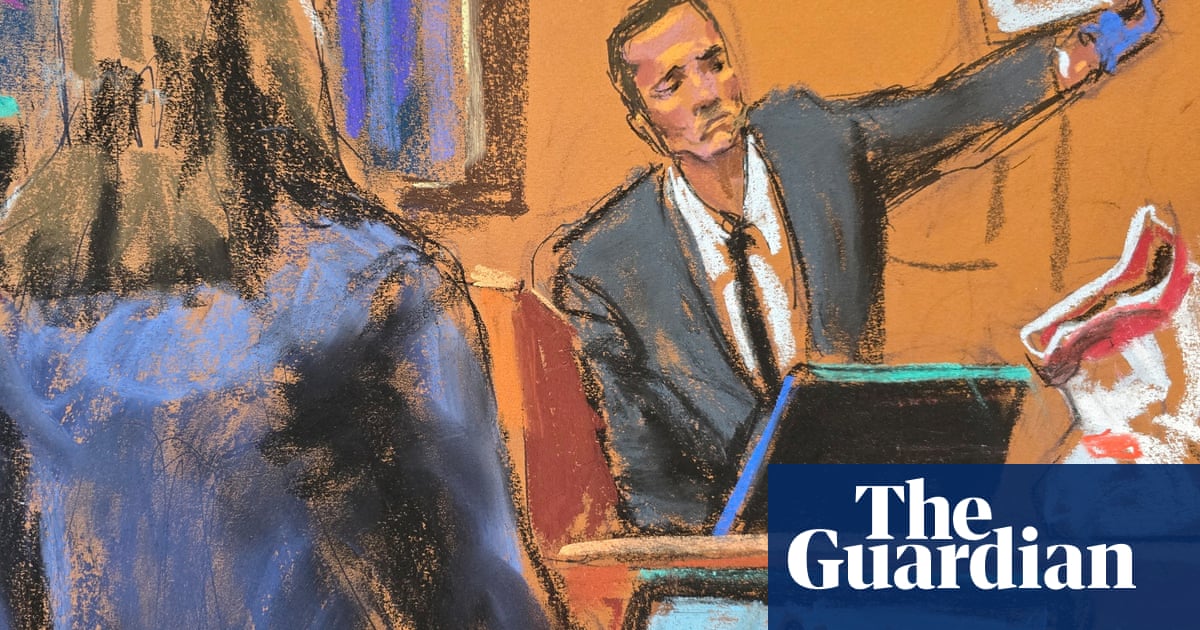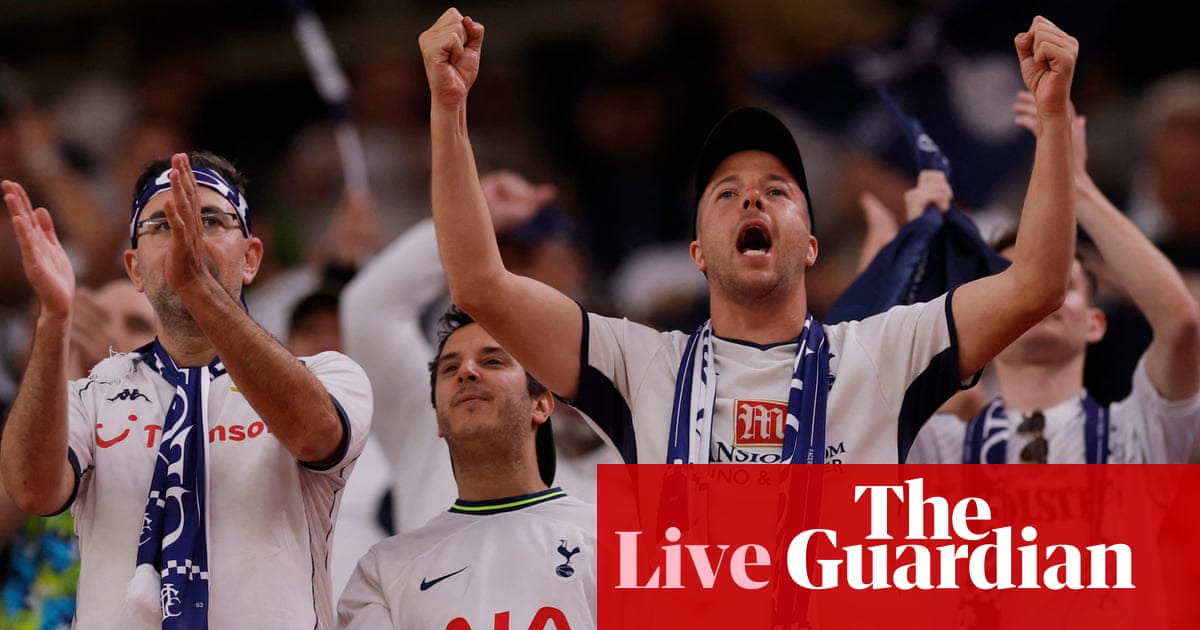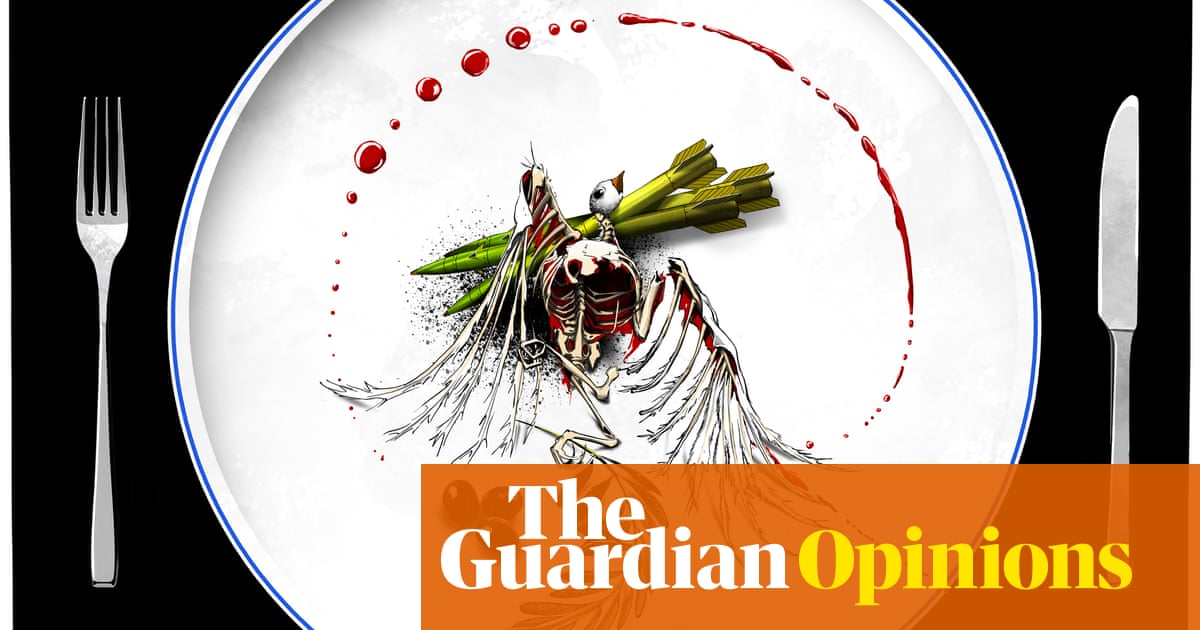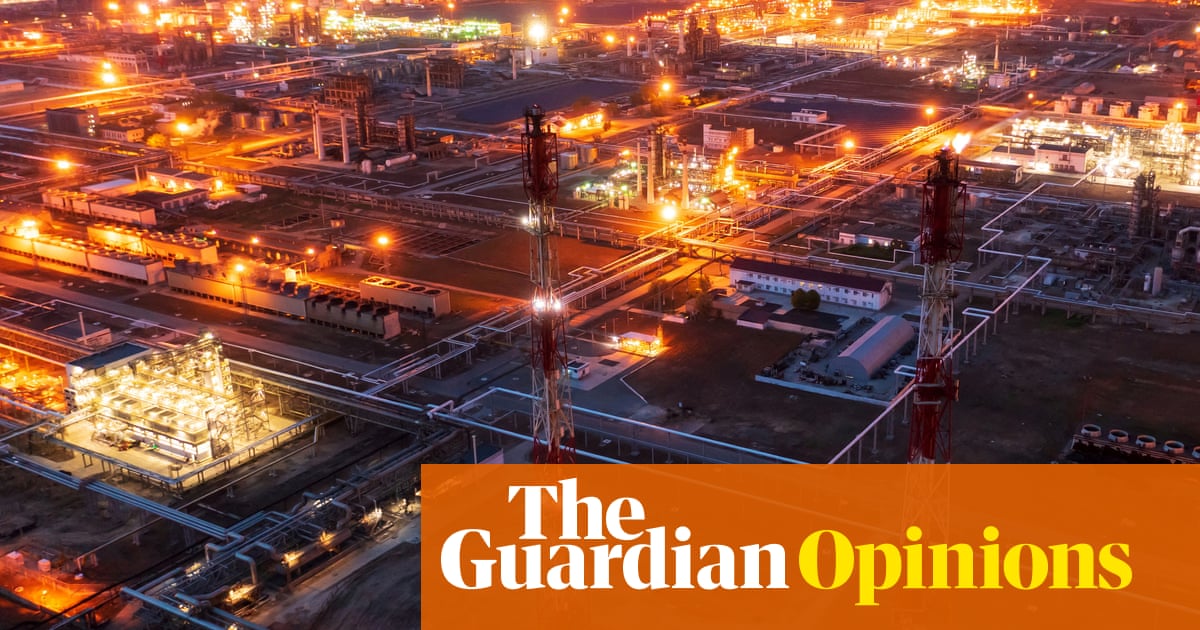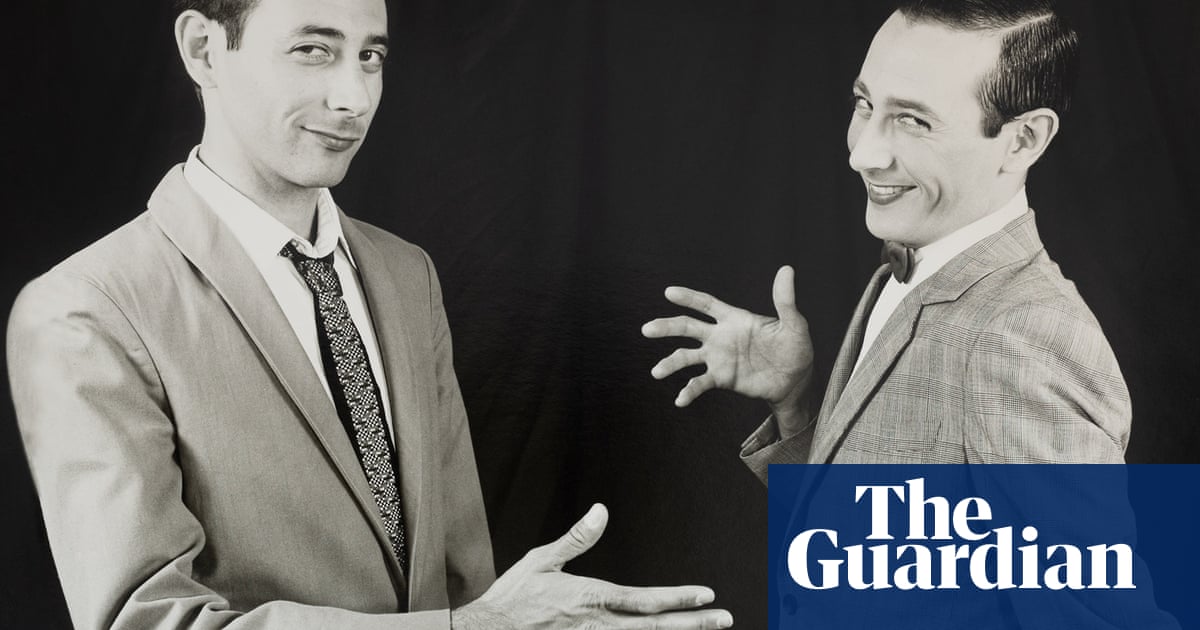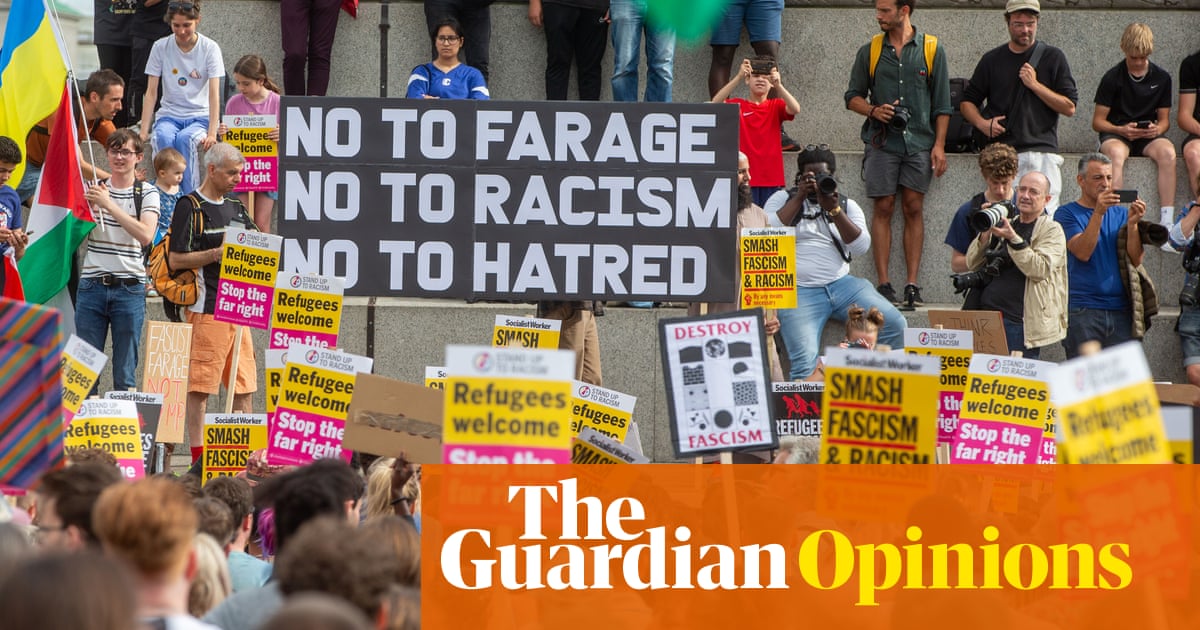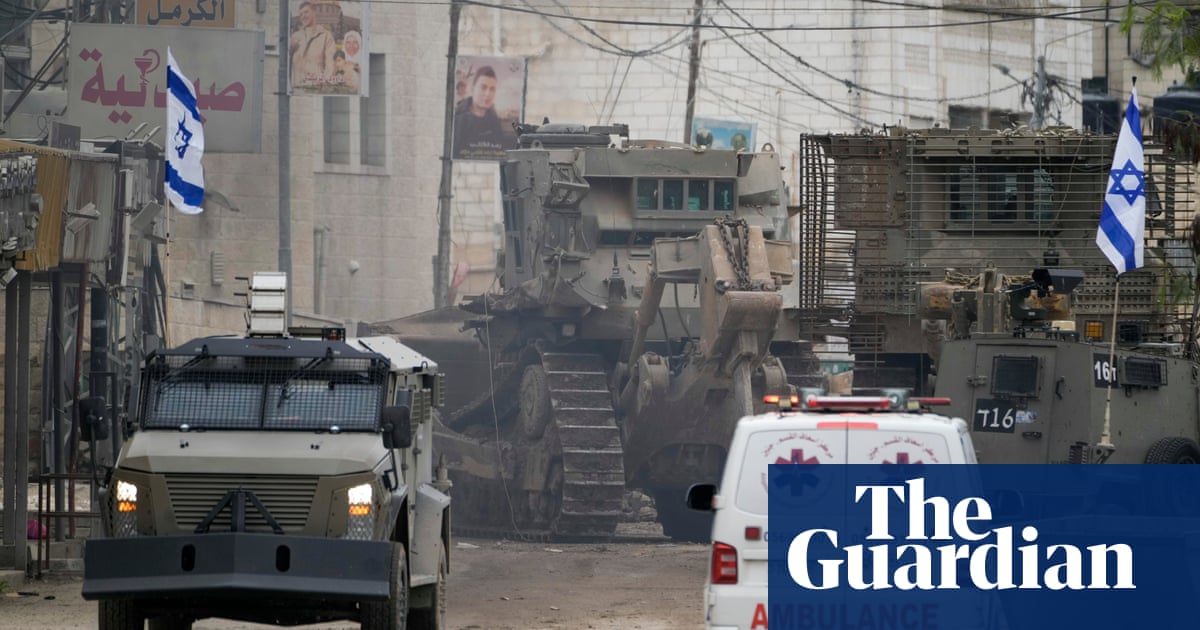For Ange Postecoglou and Tottenham, there was only one story, one mission. It was not about what happens next with the manager; that can wait. It was about grasping an opportunity that does not come around very often, about emerging from what has felt like a generation’s worth of jibes; about winning.
On a golden night for their long-suffering followers, they chased the baggage off their backs, they changed the narrative. Yet again, Postecoglou won in his second season. For the first time since 2008, Tottenham got their hands on a trophy.
There was an idea that success here could do more than rescue the season and bring Champions League qualification; it could unlock something. But in the release of so much pent-up frustration upon the full-time whistle, all that mattered was the moment.
It was not a classic. Spurs scored just before the interval when Brennan Johnson attacked a Pape Sarr cross, the ball spinning home – just about – with assistance from the unfortunate Manchester United defender, Luke Shaw. And thereafter, Postecoglou’s team defended with their lives, the central defenders Cristian Romero and Micky Van de Ven emerging with tremendous credit.
United had their openings, none bigger than when Rasmus Højlund looped a header goalwards only to be thwarted by an acrobatic goal-line clearance by Van de Ven; the moment of the match. Spurs frustrated United, and the frustration was certainly intense for those in red, beginning with the manager, Ruben Amorim. The glory belonged to Spurs.
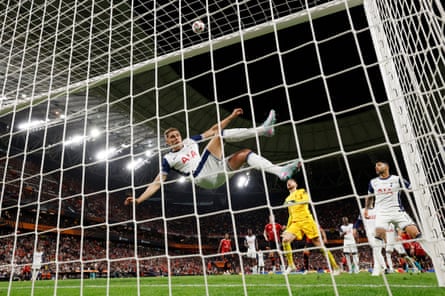
The hype had been extraordinary: redemption or Armageddon. For both clubs. It felt as black and white as that. And if the line about Bilbao bobbins got a laugh, a reference to the historically awful league seasons of each team, it overlooked how hard they had fought to get here; how much it meant.
You could see in the faces of the supporters, many of whom had made wonderful odysseys to reach San Mamés; you could hear in their exhortations. It was even there in the blind faith. United fans noted that the last season in which their neighbours, Manchester City, went without silverware, they had won the Europa League under a Portuguese manager. The Spurs support looked at Newcastle and Crystal Palace, how they had ended long trophy droughts, and wondered whether it might be their turn.
Postecoglou had dropped a few bombshells on Tuesday, mainly about his Spurs future or lack of one, and he had another with his selection; Richarlison in, Son Heung-min among the substitutes. Son had only recently returned from injury. Amorim’s big move had been to start Mason Mount over Alejandro Garnacho. His idea was to have Bruno Fernandes exert his influence from a deeper midfield starting position.
The nerves jangled; hearts hammered. On the pitch and in the stands. There were errors as both teams fought to settle; fouls conceded, clearances fluffed. It was end to end, the tempo lifted from a weekend Premier League fixture. Composure was needed. It felt plain that whoever could rise above the maelstrom would be decisive.
Postecoglou has shown that he can be more flexible with his approach in the knockout rounds of this competition. It need not be intricate attacks from every angle. In the absence of a clutch of creative midfielders, he gave Pape Sarr the No 10 role – he brought the press aggressively to Fernandes – and there was a directness about Spurs; they were happy to go long for Dominic Solanke, to try to get in behind Harry Maguire.
The individual battles pounded. It was easy to fixate on Amad Diallo v Destiny Udogie, with the Spurs left-back intent on taking risks, on driving upfield – and not without success. Diallo was booked for tugging at his shirt during the first-half. In the other direction, Diallo shimmered with menace.
Spurs blew the game open in the 42nd minute. There had been few clear chances up to that point. Sarr had a shot blocked after a loose Maguire pass for Shaw, Johnson having got in initially while for United, Diallo flashed in a couple of dangerous balls.
after newsletter promotion
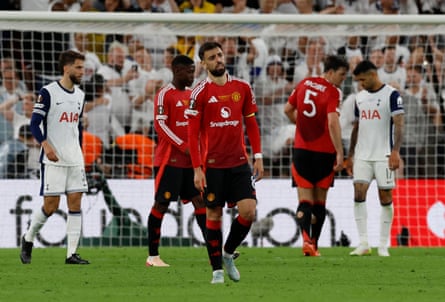
The breakthrough was of a piece with the scrappiness of the first half. Sarr’s whipped cross from the left was dangerous, with Johnson making a trademark run from the far post. He could not finish on the bounce and that was when fate intervened, the ball rearing up, striking Shaw’s upper arm and squirming into the corner beyond André Onana’s desperate dive.
There was a moment before kick-off when the teams changed ends but Spurs insisted on having their pre-game huddle in the half that their fans had surrounded; the one that United were to set up in. It spoke to a kind of defiance, a desire for them to get in amongst United. Romero, wearing the captain’s armband in Son’s absence, carried the fight to Rasmus Højlund. The intensity in so many areas was impossible to ignore. The quality was sketchy. It was only about the result.
United had been here before this season; trailing Spurs, needing to find an answer. In both of the league fixtures and the Carabao Cup quarter-final, they could not do it, losing all three. Amorim spoke animatedly to his coaches. His team needed greater incision.
Spurs sank deeper, measuring their progress in physical duels won, in clearances executed. Udogie made a crucial tackle on Diallo inside the area before surging forward at the other end moments later, narrowly missing a pass to Solanke. Son got on for Richarlison and Spurs dug ever deeper.
The Van de Ven clearance stood as a symbol. Guglielmo Vicario failed to claim a Fernandes free-kick, allowing Højlund to loop a header over him towards the net. Enter Van de Ven, stretching every sinew in one of those long legs to spectacularly clear from high above the line.
Amorim made changes, including Garnacho and Joshua Zirkzee for Mount and Højlund. United probed. Fernandes blew a header when well-placed. Garnacho worked Vicario. Postecoglou brought on Kevin Danso for Johnson and went to a back five. At the very end, Vicario saved from a Shaw header. Spurs resisted.

 5 hours ago
3
5 hours ago
3
